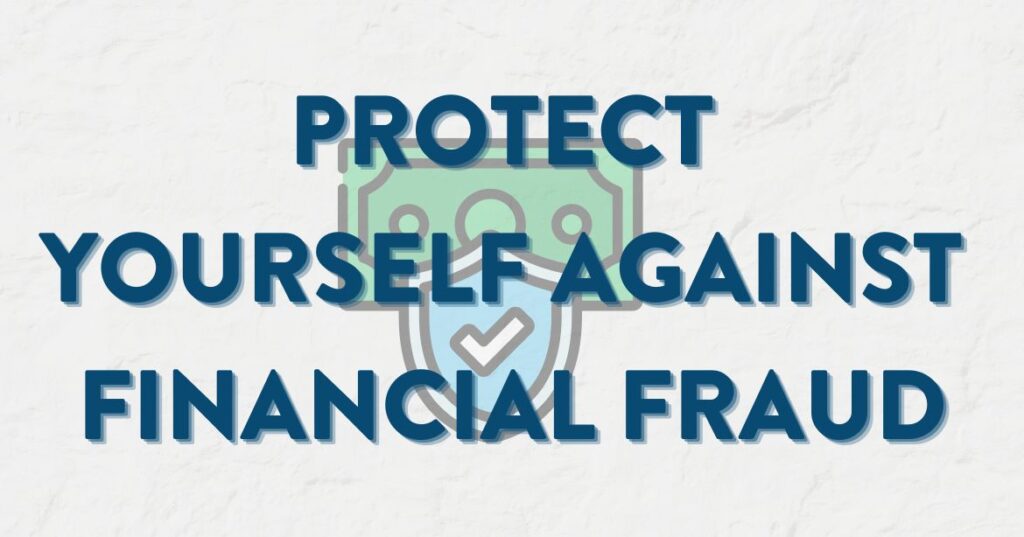Retirement is meant to be a time of relaxation, freedom, and reflection after years of hard work. However, for many retirees, it also becomes a time when they are a target for financial fraud schemes that prey on their hard-earned savings. While the risks of fraud can affect anyone, retirees are especially vulnerable due to their reliance on fixed incomes and accumulated retirement funds. Staying vigilant and informed is key to protecting financial well-being and avoiding potentially devastating consequences.
Why Retirees Are Prime Targets for Financial Fraud
Retirees often have substantial savings, pensions, or retirement funds, making them attractive targets for fraudsters. Many retirees are not as familiar with new financial technologies or complex investment schemes, which makes them more susceptible to manipulation. Additionally, the stress of managing a fixed income can sometimes cause individuals to overlook or misunderstand red flags, allowing scams to go unnoticed until it’s too late.
Fraudsters know that retirees may be less likely to challenge a convincing offer or may be unaware of current financial protections, allowing them to exploit these gaps in knowledge. Common types of fraud targeting retirees include Ponzi schemes, fake investment opportunities, phishing scams, and fraudulent charity solicitations.
Types of Financial Frauds Targeting Retirees
- Investment Fraud: Fraudsters often promise high returns on “guaranteed” investments — such as real estate or gold — that seem too good to be true. These scams might appear to be legitimate, especially when they offer low-risk, high-reward deals. However, they are often designed to steal money while giving little or no returns to victims.
- Phishing and Identity Theft: With an increasing number of transactions occurring online, retirees are vulnerable to phishing attacks. Fraudsters may impersonate legitimate financial institutions or government agencies and ask for sensitive personal information, such as Social Security numbers, banking credentials, and passwords.
- Ponzi and Pyramid Schemes: Ponzi schemes promise high returns by paying older investors with the funds of newer investors, while pyramid schemes recruit participants to invest money in exchange for the chance to recruit others. Both schemes eventually collapse, leaving later investors with significant losses.
- Fake Charities: Fraudsters often exploit retirees’ generosity by creating fake charitable organizations and asking for donations. These scammers might prey on retirees’ goodwill, particularly after a natural disaster or high-profile cause, diverting funds that were meant for legitimate charities.
- Unsolicited Tax Refund or Relief Offers: Scammers often impersonate the IRS or other tax-related bodies, offering large tax refunds or claiming they can lower a retiree’s tax bill. Retirees are tricked into providing personal financial details, only to find out later that they’ve been scammed.
The Importance of Protecting Retirement Funds
For retirees, preserving retirement savings is critical, as those funds must often sustain them for decades. Losing a portion of that money to fraud can have long-term consequences, especially if it leads to a reduced standard of living or forces a delay in planned retirement goals.
Fraud can also have significant tax implications. Many fraudulent schemes result in the loss of money, and when those losses are not reported correctly, it can trigger tax issues. For example, withdrawals from retirement accounts to cover losses may incur penalties and taxes, reducing the retiree’s ability to recover financially. Moreover, some fraudulent schemes promise tax-free growth or tax advantages, only for victims to find themselves with unexpected tax liabilities when the scam collapses.
How Retirees Can Protect Themselves
- Stay Educated: Knowledge is the first line of defense against fraud. Retirees should stay informed about the latest fraud trends and learn to recognize common scams. Resources such as the Federal Trade Commission website provide valuable tools and information on how to spot scams.
- Verify Investment Offers: If an investment opportunity sounds too good to be true, it probably is. Retirees should research potential investments thoroughly and consult with a trusted financial advisor before committing any funds. Legitimate investment offers should come with full disclosure and transparency.
- Be Cautious with Personal Information: Always be cautious when sharing personal or financial information. Avoid unsolicited phone calls, emails, or text messages asking for details like Social Security numbers, credit card information, or passwords. Reputable organizations will never ask for such details over the phone or via email.
- Report Suspicious Activity: If a retiree suspects they have been targeted or scammed, it’s crucial to report the incident to the authorities immediately. This includes contacting the Federal Trade Commission, the Securities and Exchange Commission, or the IRS if necessary. The quicker a fraud is reported, the higher the chances of stopping it and recovering lost funds.
- Work with Trusted Advisors: Engaging with a certified financial advisor who has a fiduciary duty to act in the retiree’s best interest can help protect retirement funds. Financial professionals can provide guidance on how to safely manage funds and avoid potential scams. Always ensure that the advisor is registered with the appropriate regulatory body. Plus, a financial advisor is going to work hard to protect your assets, keeping your financial independence a top priority.
- Monitor Accounts Regularly: Regularly reviewing bank and investment statements can help catch fraudulent charges or withdrawals early. Retirees should sign up for account alerts to receive notifications of suspicious activity, and ensure their passwords and security settings are robust.
Be Aware and Stay Vigilant
Retirees may be more vulnerable to financial fraud due to a lack of familiarity with certain scams or financial technologies, but staying vigilant and informed can help protect you from significant financial loss. By keeping an eye out for warning signs, verifying investment opportunities, and working with trusted financial professionals, retirees can safeguard savings and avoid falling victim to fraud.
The peace of mind that comes with a secure financial future is priceless, and with the right steps, retirees can continue to enjoy their retirement without the constant threat of financial fraud hanging over them.
Disclaimer: This article provides general tax planning information and should not be considered tax advice. Please consult with a qualified tax professional for advice specific to your situation.





